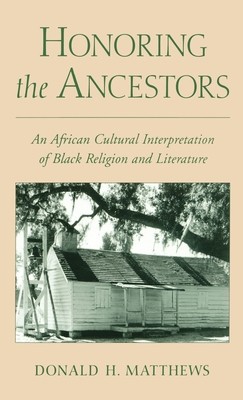
- We will send in 10–14 business days.
- Author: Donald H Matthews
- Publisher: Oxford University Press, USA
- ISBN-10: 0195091043
- ISBN-13: 9780195091045
- Format: 14.8 x 21.6 x 2.1 cm, hardcover
- Language: English
- SAVE -10% with code: EXTRA
Reviews
Description
Donald Matthews affirms once and for all the African foundation of African-American religious practice. His analysis of the methods employed by historians, social scientists, and literary critics in the study of African-American religion and the Negro spiritual leads him to develop a methodology that encompasses contemporary scholarship without compromising the integrity of African-American religion and culture.
Because the Negro spiritual is the earliest extant body of African-American folk religious narration, Matthews believes that it holds the key to understanding African-American religion. He explores the works of such seminal black scholars as W. E. B. DuBois, Melville Herskovits, and Zora Neale Hurston, tracing the early development of the African-centered approach to the interpretation of African-American religion. This approach involves "cultural/structuralism", the author's term for the method used by DuBois, Herskovits, and Hurston that emphasizes the thick reading of narrative expressions. Such a reading allows the scholar to identify the cultural significance of particular oral and written texts and serves as a point of identification and a cultural link between African and African-American religion. Matthews' close analysis of the spiritual employs a dialectical and postmodernist reading and reveals a religious philosophy that addresses the deepest concerns and desires ofAfricans in America. These concerns are cultural, political, and psychological, but are ultimately related to African religious structures of meaning. This book poses a challenge to end the battle between Afrocentrists and multiculturalists by acknowledging their common intellectual heritage in the works of DuBois, Herskovits, and Hurston. It will be of great interest to students and scholars of African-American religion and culture and those interested in Afrocentric literature.
EXTRA 10 % discount with code: EXTRA
The promotion ends in 18d.08:13:15
The discount code is valid when purchasing from 10 €. Discounts do not stack.
- Author: Donald H Matthews
- Publisher: Oxford University Press, USA
- ISBN-10: 0195091043
- ISBN-13: 9780195091045
- Format: 14.8 x 21.6 x 2.1 cm, hardcover
- Language: English English
Donald Matthews affirms once and for all the African foundation of African-American religious practice. His analysis of the methods employed by historians, social scientists, and literary critics in the study of African-American religion and the Negro spiritual leads him to develop a methodology that encompasses contemporary scholarship without compromising the integrity of African-American religion and culture.
Because the Negro spiritual is the earliest extant body of African-American folk religious narration, Matthews believes that it holds the key to understanding African-American religion. He explores the works of such seminal black scholars as W. E. B. DuBois, Melville Herskovits, and Zora Neale Hurston, tracing the early development of the African-centered approach to the interpretation of African-American religion. This approach involves "cultural/structuralism", the author's term for the method used by DuBois, Herskovits, and Hurston that emphasizes the thick reading of narrative expressions. Such a reading allows the scholar to identify the cultural significance of particular oral and written texts and serves as a point of identification and a cultural link between African and African-American religion. Matthews' close analysis of the spiritual employs a dialectical and postmodernist reading and reveals a religious philosophy that addresses the deepest concerns and desires ofAfricans in America. These concerns are cultural, political, and psychological, but are ultimately related to African religious structures of meaning. This book poses a challenge to end the battle between Afrocentrists and multiculturalists by acknowledging their common intellectual heritage in the works of DuBois, Herskovits, and Hurston. It will be of great interest to students and scholars of African-American religion and culture and those interested in Afrocentric literature.


Reviews